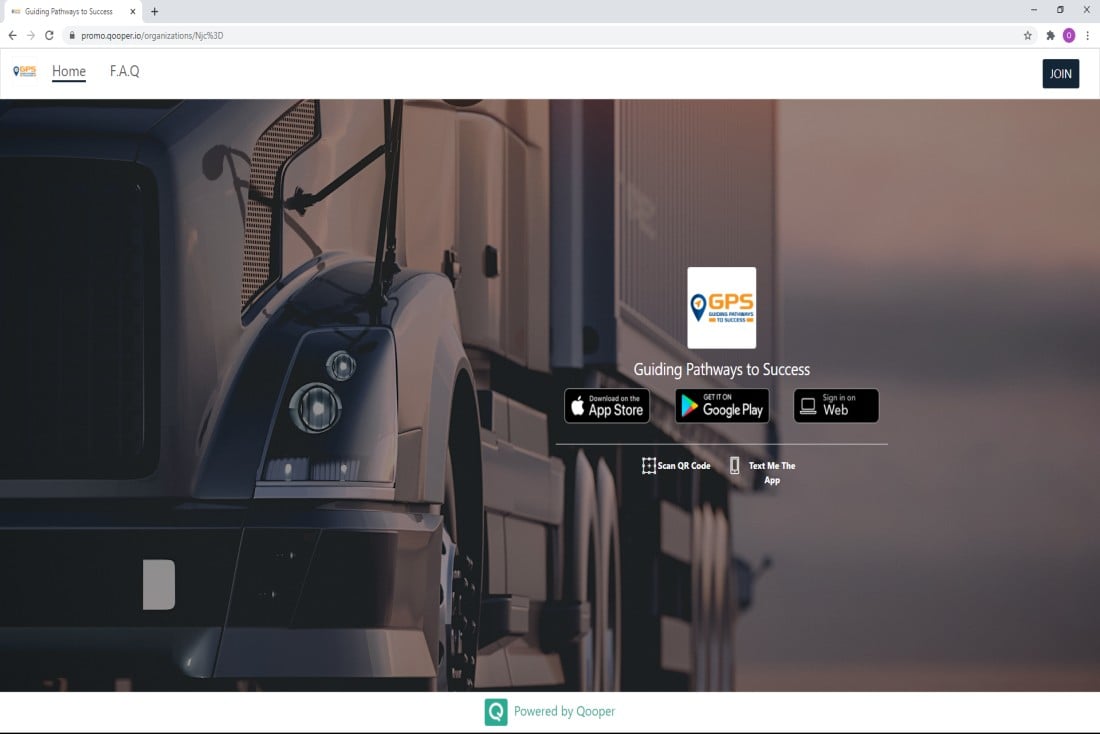Career Mapping Examples
 Omer Usanmaz
·
6 minute read
Omer Usanmaz
·
6 minute read
The career mapping process is mutually beneficial to both the employer, the employee development, and the employee retention rate while primarily assisting throughout the stages of an employee's traditional career ladder. A career roadmap typically provides an overview of the requirements that can positively benefit progression and equally contribute towards a modulated and foreseeably lucrative path toward career lattice.
Why Create a Career Map?
The map for career planning is worth considering, as it benefits career pursuits by highlighting the benefits, and the scope of improvement, visualizing the ultimate goal and providing appropriate guidance to achieve a quality personal career path. The employers and employees can equally set goals, requirements, and various standpoints, thereby enhancing the chance of a multivariate and highly promising career opportunity.
The 4 Steps of Career Mapping
The process of mapping a personal career advancement path is substantially simple. Still, it requires consideration of personal requirements and objectives to effectively chart out a career path program toward a constructive career journey. Let's understand four important steps toward career development.
Understanding the Vision Empowering Career Pathing
To achieve set objectives and career goals, it is important to visualize a career path while also preparing for career setbacks, as the future cannot be predicted but can be prepared for. There are numerous types of career paths, and understanding your present and aspired future career level, substantially benefits growth.
Mapping Personal Experiences for the Career Pathway
To map rewarding plans, it is important to introspect and understand personal experiences and learn from them. When mapping personal experiences, you retain an accurate assessment of your current progress, and it helps to develop further and refine an approach catering to a quality future.
Specialists at Positions With Relevant Skills
This is a crucial step that also requires investments of time and, most importantly, setting-aside pre-conceived notions, as these specialists may vary hierarchically as juniors and seniors. The specialists would be in numerous managerial roles like direct manager, finance manager, and even advertising sales manager, or relatively administrative roles like CEO, CFO, director, and similar. Here, the benefit arises from their wealth of insights which can be avoidable setbacks, incentives, and in positive cases, their availability, to mentor you by leveraging their leadership capability.
Mentoring software can enhance this process by facilitating mentor-mentee matching, tracking development goals, and maintaining clear communication throughout the career mapping journey.
A Career Map for a Rewarding Future
The most important step would be forming a career map that benefits your professional development. Understanding the vision backing the career pathway and mapping personal expectations and progress, with the insights and guidance derived from mentors, simplifies preparing the career path. The collated knowledge, experience, and guidance help prepare a stable roadmap and career progression.
Examples of Career Paths
The in-depth understanding shared here largely depends on instances of practical and quality use of the concepts of career pathway mapping. Let's observe a few examples of career strategies and how their path can be mapped.
Teacher
In this instance, we can presume a marketing student, midway, realizes a sudden shift in interest toward computer science and enjoys sharing knowledge with colleagues, juniors, and even seniors in the field. The student, therefore, aspired to transition and become a computer-science teacher but lacked the necessary qualifications. To transition from this stage of marketing to teaching, The student began by preparing a roadmap, which operated as follows.
To transition from the current stage as a marketing student, the student had to initially prepare for a bachelor's degree in teaching and a bachelor's degree or diploma in computer science. The student had the requisite knowledge but required experience and accreditation. The student, by the side, engaged in webinars and seminars conducted by experts to leverage substantial experience. After graduating with a bachelor's in computer science and teaching, the student could work in a school. With progressive experience, the student benefited from teaching eligibility in the educational job market like colleges and universities and additionally through tuition, online classes, courses, and much more.
Software Developer
The above instance revolved around a transition between two significantly diverse fields. But, there are times when the transition is within similar fields requiring further upskilling and knowledge. The student has efficient technical skills in computer and coding languages, namely Java, Python, C++, and HTML. Upon receiving their high-school diploma, their stellar school grades motivated them to become software developers.
But, the student realized that a high-school diploma and knowledge of Java, Python, C++, and HTML, were helpful but not enough. To compensate for the additional requirements, they began by attending numerous in-person webinars and workshops, but their exposure to the vast database of codes was confusing. In one of their training seminars, the student met a software developer who used to work for a major multinational company and had extensive experience and technological knowledge. The contact helped get in touch with the IT Manager in the same company.
The IT Manager mentored and explained the importance of formal education in computer science and additional education through a coding BootCamp. Their mentor's successful guidance helped them understand the important aspects and requirements a software developer has, extending beyond coding. The student's hard work and accurate roadmap, backed by guidance, helped them land a high-paying dream job that they enjoyed immediately after graduation.
Entrepreneurship
In this instance, the employee began in a fresher's position and worked for two years. They observed that the managing director entered and exited the premise in a luxurious automobile, along with respect. The employee was promoted to assistant manager, which they appreciated, but strived to accomplish further. The employee approached the senior manager and discussed establishing a roadmap toward the future.
The senior manager has worked in the company for a long time while having extensive knowledge of various processes. The employee's senior manager initially advised them to interact with their colleagues from various departments like sales, finance, business development, and more to understand the company's internal functioning. This helped them understand the scope of improvement, the incentive provided, and the associated responsibilities. Unbeknownst to the employee, his senior manager recommended them to the company's CEO. A few months in, the CEO called the employee to understand their aspirations further and guided them towards improving skill sets like communication, negotiation, and similar skills, thereby contributing to the employee's business plan.
With the CEO's support and significant knowledge, the employee progressed with a sense of stability and was delighted as the action plans took effect. The employee subsequently employed his business plan and started a medium-sized business of their own, providing customer relationship management to corporate enterprises.
Marketing Manager or Senior Marketer
A simpler example is where appropriate supplementary upskilling is complemented by experience and guidance. The company hired a fresher interested in sales and business development who strived to become a senior marketer. The fresher, they are from a family of entrepreneurs who started from scratch and grew successfully. To effectively understand and handle operations, the fresher approached their uncle, a social media manager at a leading Indian marketing agency.
Their uncle helped prepare a roadmap as they strived to become a senior marketing manager. They began by interacting with employees in the respective departments and improved their communication, creativity, strategizing, and soft skills. The employee subsequently upskilled through various online courses while observing their senior marketer's client engagements. The fresher also self-emphasized networking efficiently within their team and with other teams, as they were aware of the company's policy of considering colleagues' opinions and guidance towards delegating promotion.
The fresher's dedication to understanding processes and extending beyond their comfort zone, supported by the colleagues' goodwill, highlighted the fresher as a candidate suitable for promotion. The fresher was eventually promoted to assistant manager and won various customer accolades over the next 2 to 3 years. Their growing popularity internally helped them achieve the role of a senior marketing manager, handling a talented team of 15 marketers.
Career Mapping is important and requires organizational and personal emphasis and adoption. It is time-consuming and requires substantial effort, but it can largely harmonize growth, development, and progression while sustaining stability and mutually benefitting the employee and employer.
FAQs
Q1: What is career mapping?
A1: Career mapping is the process of planning and visualizing an employee’s career path to achieve personal and professional goals. It helps employers and employees align expectations and chart a structured route for growth.
Q2: Why is career mapping important for employees and employers?
A2: Career mapping improves employee development, engagement, and retention while helping organizations identify and nurture talent for future leadership and strategic roles.
Q3: What are the main steps in career mapping?
A3: The four key steps are:
-
Understanding your career vision and goals.
-
Mapping personal experiences and skills.
-
Learning from specialists and mentors.
-
Creating a structured career roadmap.
Q4: How can mentoring software support career mapping?
A4: Mentoring software connects mentors and mentees, tracks development goals, facilitates communication, and ensures structured guidance throughout the career planning journey.
Q5: Can career mapping help transition to a new profession?
A5: Yes. Career mapping helps plan the required education, skills, certifications, and experiences needed to successfully transition to a different career or industry.
Q6: How does career mapping support leadership development?
A6: By identifying high-potential employees and guiding them through training, mentoring, and skill-building, career mapping prepares individuals for senior roles and strategic positions.
Q7: What are examples of career paths that can benefit from mapping?
A7: Career mapping can guide transitions or growth in various fields, including teachers, software developers, entrepreneurs, marketing managers, and other professional roles.
Q8: What are the benefits of a career roadmap for employees?
A8: Benefits include clarity on career goals, structured growth, skill development, access to mentorship, improved confidence, and better career decision-making.
Q9: How can organizations implement effective career mapping?
A9: Organizations can implement career mapping by providing mentorship, offering skill development opportunities, aligning career goals with organizational objectives, and regularly reviewing employee progress.
Q10: Is career mapping a one-time process or ongoing?
A10: Career mapping is ongoing. Regular reviews and updates ensure that career goals, skills, and mentorship remain aligned with changing personal aspirations and organizational needs.





